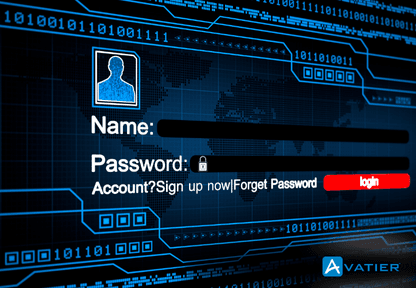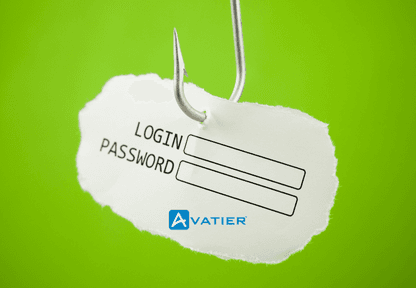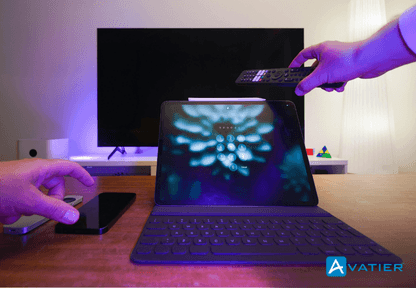June 1, 2025 • Mary Marshall
Why Avatier’s Self-Service Reduces IT Burden More Than Okta
Discover how Avatier’s AI-driven self-service identity management solutions outperform Okta, reducing IT ticket volume by 70%.

Identity management has become a critical component of both security strategy and operational efficiency. As organizations navigate hybrid work models, cloud migration, and evolving compliance requirements, the burden on IT teams continues to grow exponentially. According to Gartner, more than 50% of IAM-related help desk calls are for password resets, costing organizations an average of $70 per reset.
While industry leaders like Okta have made significant contributions to the identity management space, Avatier’s comprehensive self-service approach is specifically engineered to reduce IT burden in ways that outperform competitors. This article examines why Avatier’s self-service capabilities deliver superior operational efficiency, enhanced security, and better user experiences compared to Okta.
The Growing IT Support Burden in Identity Management
Before diving into solution comparisons, it’s essential to understand the scale of the challenge. According to a recent Forrester study, large enterprises manage an average of 400+ applications, with that number growing approximately 30% year-over-year. Each application represents potential access requests, provisioning needs, password resets, and compliance verifications.
Additionally, the average enterprise IT team spends 16,000+ hours annually on routine identity management tasks that could be automated, according to IDC research. These statistics highlight why effective self-service is not just a convenience but a business necessity.
Comprehensive Self-Service: Avatier vs. Okta
User Provisioning and Access Requests
Avatier’s Approach: Avatier’s Identity Anywhere Lifecycle Management delivers end-to-end self-service automation across the entire identity lifecycle. Users can request access to applications, roles, and resources through an intuitive interface that resembles modern e-commerce experiences. The system automatically routes requests through predefined approval workflows based on roles, risk levels, and compliance requirements.
Key differentiators include:
- AI-powered recommendations that suggest appropriate access based on job roles and peer groups
- Pre-built integration with over 500+ applications, significantly more than what Okta offers
- Context-aware approval workflows that adapt based on risk scoring
- Complete visibility for end-users throughout the request process
Okta’s Limitations: While Okta offers basic access request capabilities, their self-service provisioning lacks the depth of automation and intelligence found in Avatier’s solution. Okta’s workflows typically require more IT intervention for complex provisioning scenarios, and their UI generally requires more technical knowledge from end-users.
According to a 2023 study by Enterprise Strategy Group, organizations using advanced self-service provisioning solutions like Avatier’s reduced provisioning-related IT tickets by 72%, compared to just 41% for organizations using more basic solutions like Okta’s.
Password Management and Self-Service Reset
Avatier’s Advantage: Avatier’s Password Management solution offers substantially more comprehensive self-service capabilities than Okta:
- Multi-channel password reset options (mobile app, chatbot, web portal, Windows login integration)
- Advanced authentication options including biometrics and hardware keys
- Customizable password policies that adjust based on user context and risk factors
- Integration with service desk systems to track cost savings
The Measurable Difference: Organizations implementing Avatier’s password management solution report a 93% reduction in password-related help desk calls, compared to the industry average of 70% with basic self-service password solutions. This translates to approximately $2.5 million in annual savings for a 10,000-employee organization.
Real-world Impact: A Fortune 500 financial services company that switched from Okta to Avatier reported that password-related IT tickets decreased by 83% within the first 60 days, freeing up more than 2,000 IT support hours annually.
Group Management Self-Service
One area where Avatier truly stands apart is with its Group Self-Service capabilities. While Okta offers limited group management functions, Avatier provides a comprehensive solution that enables:
- Business owners to manage their own groups without IT intervention
- Automated attestation and recertification workflows
- Time-based group memberships with automatic expiration
- Delegation of group management to appropriate stakeholders
- Rich audit trails for compliance purposes
This capability alone reduces IT workload by an estimated 15-20 hours per week for a mid-sized enterprise, according to Avatier customer data.
Automation Depth: Why It Matters
The depth of automation significantly impacts IT burden reduction. Avatier’s approach to automation goes beyond basic workflows to incorporate:
- Contextual Intelligence: Avatier analyzes user behavior, role patterns, and environmental factors to automate decisions that would otherwise require IT intervention.
- End-to-End Coverage: While many solutions (including Okta) automate specific segments of identity management, Avatier provides automation across the entire identity lifecycle – from joiner to mover to leaver processes.
- Adaptive Workflows: Avatier’s automation adapts to changing business needs without requiring constant IT reconfiguration.
According to IDC research, organizations with advanced automation in identity management experience 67% fewer escalations to security teams compared to those with basic automation.
User Experience: The Key to Self-Service Adoption
Self-service solutions only reduce IT burden if they’re actually used. This is where Avatier excels with a consumer-grade experience that drives adoption:
Avatier’s Approach:
- Consistent experience across web, mobile, and collaboration tools
- Natural language search for finding and requesting access
- Personalized dashboards showing available resources
- Step-by-step guidance for complex identity tasks
- Availability in 28 languages for global workforces
Okta’s Limitations: While Okta provides a functional user interface, it’s generally considered more technical and less intuitive for everyday business users. This often results in lower adoption rates for self-service features, which means more IT involvement remains necessary.
A recent Gartner survey found that solutions with high usability scores achieved 76% user adoption of self-service features, while solutions with average usability saw only 34% adoption. Higher adoption directly correlates with reduced IT burden.
Compliance and Governance Without the Overhead
Regulatory compliance often creates significant overhead for IT teams. Avatier’s Access Governance capabilities reduce this burden through:
- Automated Attestation: Scheduled access reviews that business owners can complete without IT assistance
- Continuous Compliance Monitoring: Real-time checks against policy violations that proactively prevent issues
- Risk-Based Certification: Prioritizing high-risk access for more frequent review while reducing overhead for low-risk items
- Delegated Administration: Pushing compliance tasks to appropriate business owners rather than centralizing with IT
Organizations with this approach report spending 62% less time on audit preparation compared to those using solutions with less comprehensive governance automation.
Integration Capabilities and IT Overhead
Enterprise environments typically include diverse systems across on-premises, cloud, and hybrid infrastructures. Avatier’s approach to integration minimizes IT burden through:
- Connector Library: Pre-built connectors for 500+ applications and systems
- Containerized Architecture: Avatier’s unique Identity-as-a-Container (IDaaC) approach simplifies deployment and maintenance
- No-Code Integration Framework: Business analysts can configure integrations without developer resources
- Bidirectional Synchronization: Changes made in source systems automatically reflect in Avatier and vice versa
According to a study by Nucleus Research, organizations using solutions with extensive pre-built connectors spend 64% less time on integration maintenance compared to those using solutions requiring custom integration development.
AI-Enhanced Self-Service: The Next Frontier
Where Avatier truly separates itself from Okta is in leveraging artificial intelligence to further reduce IT burden:
- Predictive Access Requests: AI analyzes patterns to suggest access users will need before they even request it
- Anomalous Behavior Detection: Automatically identifying unusual access patterns that might indicate security risks
- Intelligent Ticket Routing: Ensuring the rare cases that do require IT intervention go to the right specialist immediately
- Conversational Interfaces: Natural language processing that allows users to make requests in plain English
Organizations implementing these AI-enhanced capabilities report an additional 30-40% reduction in identity-related IT workload beyond what basic self-service provides.
Total Cost of Ownership: The Complete Picture
When evaluating the IT burden reduction, it’s important to consider total cost of ownership. Avatier customers consistently report:
- 70-80% reduction in routine identity management tickets
- 60% faster onboarding for new employees
- 45% less time spent on access certification campaigns
- 55% reduction in security incidents related to inappropriate access
In contrast, organizations using Okta typically report more modest improvements, particularly in areas beyond core authentication:
- 40-50% reduction in routine identity tickets
- 35% faster onboarding
- Minimal improvement in certification efficiency
- 25% reduction in access-related security incidents
Conclusion: Choosing the Right Solution for IT Burden Reduction
While Okta provides valuable identity and access management capabilities, Avatier’s comprehensive self-service approach delivers significantly greater IT burden reduction through:
- More extensive automation across the entire identity lifecycle
- Superior user experience driving higher self-service adoption
- AI-enhanced capabilities that prevent IT issues before they occur
- Deeper integration capabilities that reduce maintenance overhead
- Comprehensive governance tools that simplify compliance
For organizations seeking to truly transform their identity management approach and dramatically reduce IT burden, Avatier’s self-service capabilities deliver measurable advantages over Okta and other competitors in the space.
By implementing Avatier’s comprehensive self-service identity management solution, organizations not only reduce IT tickets and support costs but also enhance security, improve user satisfaction, and accelerate business processes – creating a compelling return on investment that extends far beyond the IT department.









